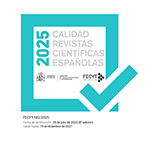The Impact of State Power on Archaeological Science in the Russian Empire
Abstract
In this paper I examine the impact of politics on archaeological science during the Russian Empire. In particular, I focus on the how the state influenced both the forms and ways of organizing archaeological research in Russia and the choice of topics and areas of research during the aforementioned period. Two levels of analysis are considered. First, I examine the impact of Russian domestic policy on the organization of various Russian archaeological congresses, whose topics and venues were largely determined by the priorities of imperial national politics. Second, I analyze the impact of Russian foreign policy on the establishment of archaeological institutions in countries where Russian archaeological research was carried out, which comprised territories that coincided and correlated to Russia’s aims abroad, such as the Balkan States and Central and East Asia. The interaction between political power and archaeological science during the Russian Empire appeared in the personal views and attitudes of scientists, who were often guided by the interests of state ideology and policy. As my analysis seeks to demonstrate, the archaeological community was loyal to the powers in charge and supported the Russian Empire’s state doctrine.Downloads
Article download
License
In order to support the global exchange of knowledge, the journal Complutum is allowing unrestricted access to its content as from its publication in this electronic edition, and as such it is an open-access journal. The originals published in this journal are the property of the Complutense University of Madrid and any reproduction thereof in full or in part must cite the source. All content is distributed under a Creative Commons Attribution 4.0 use and distribution licence (CC BY 4.0). This circumstance must be expressly stated in these terms where necessary. You can view the summary and the complete legal text of the licence.










